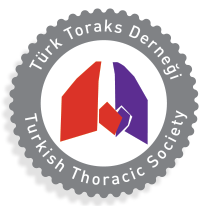Objectives: Work of walking is an important outcome measurement of functional capacity. The aim of this study was to compare work of walking in lung cancer patients with healthy subjects and and to investigate the relationship of respiratory muscle strength.
Methods: Thirty patients with lung cancer (24 male, 6 female, mean age=62.66±7.32 years) and 30 healthy individuals (24 male, 6 female, mean age=59.86±5.99 years) were included in the study. Functional capacity was evaluated using 6 minute walking test (6MWT). The work of walking calculated as a result of multiplying by 6 MWT walking distance and the body weight. Respiratory muscle strength (maximal inspiratory pressure-MIP, maximal expiratory pressure-MEP) was assessed with a mouth pressure device.
Results: Respiratory muscle strength, work of walking and 6MWT distance were significantly lower in lung cancer patients as compared to healthy subjects (p<0.05). The WOW in 6MWT was significantly related with MIP (r=0.515, p <0.001) and MEP (r=0.485, p <0.001).
Conclusion: The work of walking and respiratory muscle strength was lower than in patients with lung cancer. Work of walking during submaximal exercise correlated with respiratory muscle strength. The work walking can be used as an appropriate outcome measure for effective pulmonary rehabilitation programs in lung cancer patients.



.png)
